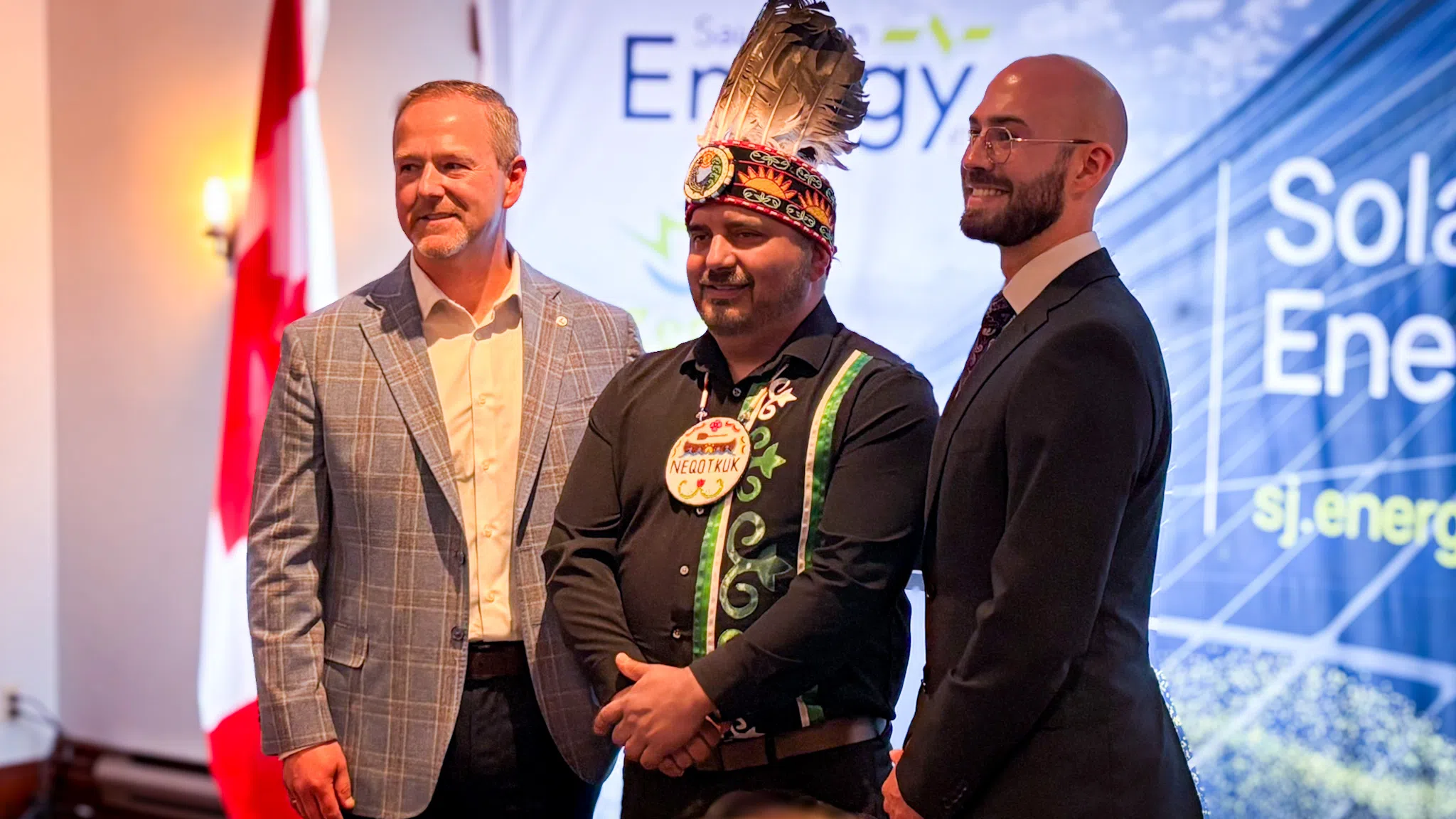A $14‑to‑$15‑million solar project is coming to Saint John, bringing clean energy to more than 1,200 homes.
Saint John Energy made the announcement on Tuesday, saying it will be one of the largest in New Brunswick.
Officials say the facility is expected to cut nearly 10,000 tonnes of greenhouse gas emissions each year, and will produce up to 10 megawatts of power.
Saint John Energy is partnering with Neqotkuk (Tobique First Nation) and Universal Kraft to build, own, and operate the Menahqwesk Kisuhs Energy Hub along Old Black River Road.
Ryan Mitchell, president and CEO of Saint John Energy, said the decision to use solar was based on extensive evaluations of multiple renewable options.
“This project allows us to deliver lower-cost, reliable clean power through a 30‑year power purchase agreement,” Mitchell said.
He added that the solar facility, which will use advanced bifacial panels on single‑axis tracking systems, is designed to maximize efficiency even during cloudy or snowy conditions.
Saint John frequently experiences fog, which could potentially impact solar production. However, Jacob Roth, project manager for Universal Kraft, said the technology is designed to ensure steady energy generation.
“We expect the panels to perform well over the whole calendar year, even when conditions aren’t perfect,” Roth said.
He added that while production may dip slightly on foggy days, the system will continue generating power even when sunlight is diffused.
Neqotkuk (Tobique First Nation) holds a 51 per cent stake in the partnership, ensuring significant local leadership in the project.
Chief Ross Perley emphasized the importance of the project in generating “own-source revenue” to fund community programs.
“We feel that it’s a priority to invest in these things for the future of the next seven generations,” Perley said.
He noted that the additional funds from renewable projects help address funding shortfalls for community services, including programs for youth and elders, that are not met by federal or provincial dollars.
Construction is set to begin in spring 2026, with the project expected to be complete by summer 2027.
The development is a key component of Saint John Energy’s Zero30 initiative, aimed at achieving net‑zero emissions by 2030.
It also represents a strong step forward in Indigenous-led renewable energy across Atlantic Canada.







